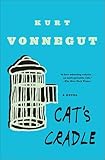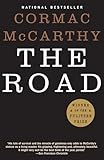1.
Imagine organizing a small get-together, a few friends and acquaintances at a neighborhood bar. It’s all very low-key. The day comes; friends arrive. You order cocktails. You chit-chat. In walks the President of the United States, with secret service, trailed by a herd of photographers. Suddenly, you are at a very different sort of party.
So it was with my journey into the world of nuclear weapons. I started researching and writing my book in 2008; we were not, then, living under threat of nuclear temper tantrum. The possibility that someone might actually use an atomic weapon again was a comfortably remote risk. I wasn’t dealing with current events; I was just interested in the people who made nuclear war a possibility—people who ended up with immense power not because they craved it but because of particular skills and talents they had. With this distance, I could do the research necessary to write about them without having nightmares.
A lot has been written about nuclear war. I have a shelf of history, biography, and popular science books about the weapons, their creators, and their evolution. From the newly re-popular Do Androids Dream of Electric Sheep to Cat’s Cradle, Red Alert (inspiration for Dr. Strangelove) to Gravity’s Rainbow, there is a rich fiction of the arms race and the post-apocalyptic landscape, heavily steeped in satire and speculation. Through all this, one can come to know an awful lot about the types of explosions humankind has learned to set off, and just how destructive they might be.
It is one thing to have that kind of knowledge when it’s all a thought experiment. It’s something else entirely when leading experts agree the chances are, once again, non-trivial. Now that Donald Trump and Kim Jong-un have arrived, I am at a very different sort of party.
2.
This decade has seen some wonderful literary novels set after apocalyptic events. Think of Station Eleven (pandemic), and of Gold Fame Citrus (catastrophic drought). If we stretch the decade a little, we get the unspecified but possibly nuclear apocalypse of The Road. These books deal intimately with the aftermath of a dreaded event. There is very little room for comfort, and they don’t traffic in the will-it-or-won’t-it anxiety that we live with in the real world; in these books, it will. It did. And it’s every bit as bad as we thought. I can only imagine that writing that kind of book is like staring into the sun.
I don’t have the stomach for that. Instead, I wrote around the edges of disaster. My book is pre-apocalyptic; it is set in this world, not in the one that may come. The central question is not what it will be like when it arrives, but rather what does the mere possibility, the capability, do to us? It’s still a novel about the possible end of the world as we know it, but its approach to that topic is oblique. And my disaster of choice was one that seemed, unlike drought or pandemic, remote and unlikely. It was behind us, not ahead. It was a safe choice.
Now the world has taken that safety away. It has catapulted my comfortably distant topic into startling relevance. It has left me with more information than I really want, in this environment, about exactly what a nuclear war would entail. Those details I spent so long collecting are fodder for the nightmares I thought I was avoiding, triggered every couple of weeks by some fresh story on the news.
3.
The first book I read, before this project was really underway, was Freeman Dyson’s Disturbing the Universe. In it, Dyson recalls time spent with the great physicist Richard Feynman, who had originally refused to work on the bomb and acquiesced only so Adolf Hitler wouldn’t get it first. He remembered Feynman sitting on the hood of his jeep in the desert, joyfully banging on a set of bongo drums to celebrate the success of the Trinity test, the first nuclear bomb ever exploded. Not long after, Feynman turned his back on military work, realizing that, in Dyson’s words, “he was too good at it and enjoyed it too much.”
Next, I dove into American Prometheus, Kai Bird and Martin Sherwin’s gripping biography of J. Robert Oppenheimer. I had downloaded the audiobook; I listened to it walking around in bright sunshine on the campus of the University of Arizona, where I was getting a master’s degree. As his life went on, Oppenheimer was clearly haunted, and he, in turn, haunted me. I can still hear the narrator’s voice in my head when I walk up the mall in the middle of the campus, among the palm trees and the oblivious undergraduates.
These were men who were responsible, in a startlingly direct way, for the fate of our world. They knew just exactly how much trouble we were in—because they helped put us there. They felt, evidently, that they had to. But did they? Clearly, both came to doubt that as their lives went on and they had to live with it. This is something, at least. My head might be full of kilotons, of radiation burns, of calculations about radius and wind speed, but at least I don’t have choices to make about any of this. Whether we survive this has nothing to do with me.
4.
A few years later, deep into the writing process, I was living in Helena, Mont., where there wasn’t much to do in the winter if you don’t ski. One snowy Saturday I went to an estate sale, for something to do. It was largely picked over by the time I arrived, but I found, in a back room—it must have once been the study, though there was no furniture—a treasure trove. There was a whole wall of books with titles like Explaining the Atom (published 1947), Early Tales of the Atomic Age (1948) and The New Force (1953). I took home a paper grocery bag full for $5. Going through them that night, I noticed that inside the cover flap of Nuclear Theft: Risks and Safeguards (1974), someone had underlined the following: “The design and manufacture of a crude weapon is no longer a difficult task,” and “The authors evaluate current methods of guarding materials and find them inadequate.”
The house had belonged to one of Helena’s wealthy old families, and the matriarch had lived there until the end. I have no way to know the nature of her obsession, if it was even hers, or if the collection had belonged to her husband who—you know these things when you live in a city of 40,000—had died a few years earlier. Maybe it had once been his; maybe she, in her last lonely years, had gone through each chilling volume, reading the passages he’d marked, to take some small comfort in the fear of something that, unlike the condition of the grand old house whose floors had started to rot, or her famously strained relationship with her daughter, or the idiots taking over the local city council, she couldn’t do a damn thing about.
Here, I found anxiety not just of the scientists, but of a fellow reader who had amassed this collection a generation before I was born, when the threat had also been real. A reader who must have found some comfort in this area of study, some pleasure. A reader who, given the context in which I had acquired her books, had lived and died in a world that, without regard to her worry, had survived every threat to its existence.
Image Credit: Wikimedia Commons.
The post Mutually Assured Destruction: Reading and Writing About Nuclear War appeared first on The Millions.
from The Millions http://ift.tt/2E5NJ6P









Comments
Post a Comment